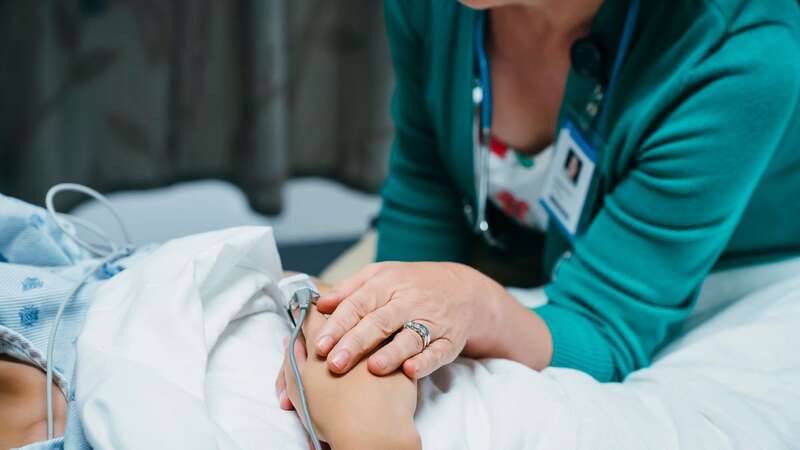

Scientists have revealed who is most likely to die from sepsis as they share certain groups who are at greater risk of developing the life-threatening condition.
New analysis of NHS data shows that people who live in deprived areas and patients who have certain medical conditions have a higher risk of death. Sepsis occurs when the immune system overreacts to an infection and starts to damage your own tissue.
The latest data also suggested that patients who have a "history of extensive antibiotic exposure" and people with learning disabilities are also at greater risk. The study, conducted at the University of Manchester, saw experts examine information on 224,000 cases of sepsis in England from January 2019 to June 2022.
Researchers compared data from over 1.3million people who didn't have the condition. As part of the study, they investigated income, employment, living environment, crime rate and education to help gauge people's socioeconomic levels. They discovered that those in the most deprived areas were 80% more likely to develop the condition compared to those based in less deprived areas.
The experts also found that those with learning disabilities were at least three times more likely to develop the life-threatening condition, reports The Sun. And in terms of pre-existing medical conditions, people with chronic liver disease have also been dealt with the same blow. However, patients with chronic kidney disease were reported to have a higher risk which was two to six times more than the general population. Patients with these diseases and those with deprived backgrounds had an increased risk of dying within a month.
 Brit 'saw her insides' after being cut open by propeller on luxury diving trip
Brit 'saw her insides' after being cut open by propeller on luxury diving trip
An increased risk was further cited for people suffering from cancer, diabetes, neurological disease and immunosuppressive conditions. The research, published in the journal eClinicalMedicine, showed that smokers, obese or underweight people are also at higher risk. Lastly, the academics found that those of South Asian descent seemed to have an elevated incidence of sepsis. They further said some groups of patients were to pass away just 30 days after being diagnosed. The deaths were highest among pensioners in their 80s and people of white ethnicity.
Professor Tjeerd van Staa, co-author of the study, commented: "This study shows socioeconomic deprivation, comorbidity and learning disabilities are associated with an increased risk of developing non-Covid-19-related sepsis and 30-day mortality in England. This research underscores the urgent need for sepsis risk prediction models to account for chronic disease status, deprivation status, and learning disabilities, along with infection severity. There is an urgent need to improve the prevention of sepsis, including more precise targeting of antimicrobials to higher-risk patients."
Co-author Dr Colin Brown, lead for antimicrobial resistance and sepsis at the UK Health Security Agency, said: "While severe infections and sepsis can impact anyone, our data is increasingly highlighting the complex interplay between socioeconomic status, underlying medical conditions and sepsis risk. Tackling inequalities is a core part of our public health approach and a deeper understanding of who serious bacterial infections affect will help us best target interventions to address them."
Dr Ron Daniels, founder and joint chief executive of the UK Sepsis Trust, said that although there are increased risks within some groups, "sepsis can still strike indiscriminately." He said: "As an intensive care doctor in inner-city Birmingham, I frequently see patients from underrepresented communities presenting late with sepsis. This important study reminds us that socioeconomic status and the presence of underlying illness - which are themselves often interlinked and additionally linked to ethnicity - are at play in determining inequality in the risk of developing non-Covid sepsis. Healthcare has a duty to reduce this inequality and improve access for all. This study therefore highlights the need for targeted education among members of the public in at-risk communities and for the health professionals that serve them, which is why advocacy organisations like the UK Sepsis Trust are working to develop resources in multiple languages, that are inclusive of different skin tones."